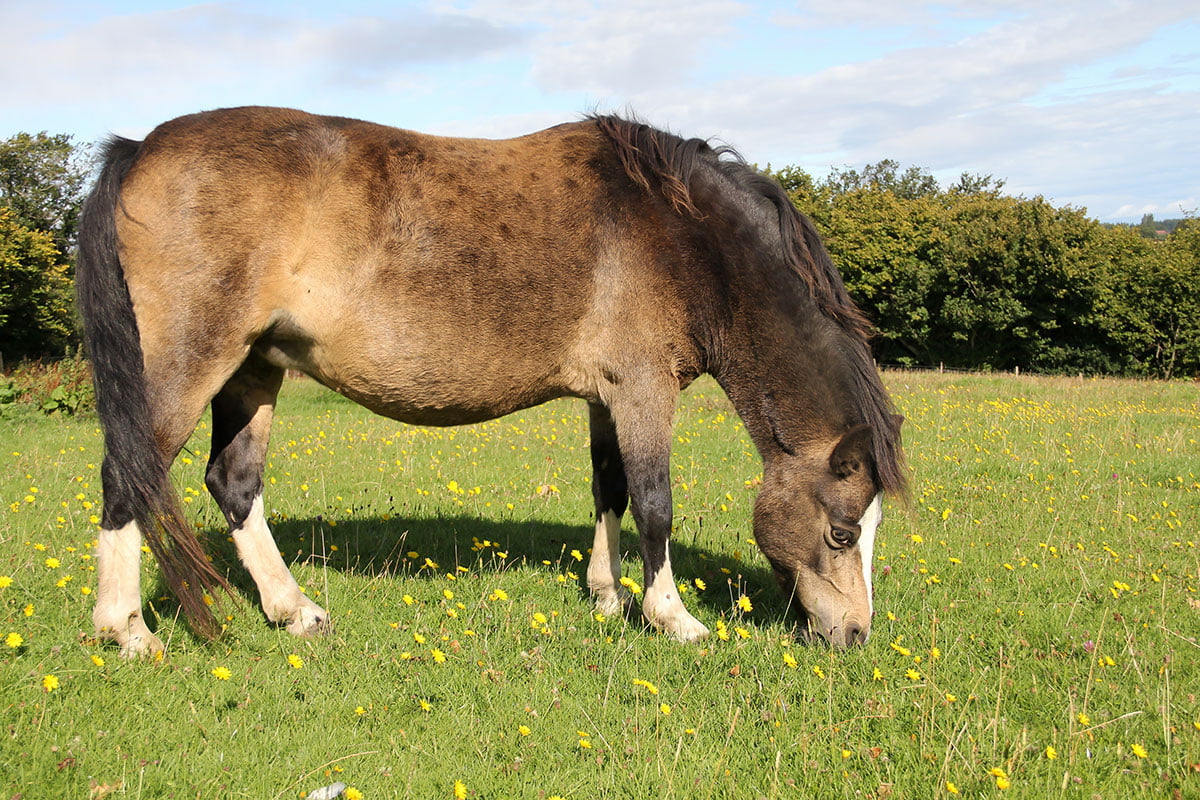Obesity is dangerous.
We now know that fat doesn’t just add padding. Fat deposits actually produce inflammatory chemicals known as adipokines and inflammatory cytokines. These chemicals produced by the fat deposits cause chronic low grade inflammation. In humans obesity is the leading cause of diabetes mellitus and cardiovascular disease. In horses obesity is the leading cause of laminitis, a devastating condition. In addition, obesity tends to lead to Equine Metabolic Syndrome, a disease in which horses develop insulin resistance, laminitis and tendon failure. Obesity can also cause cartilage defects in foals born to obese mares, “Leaky Gut Syndrome”, poor immune function and contributes to osteoarthritis.
As the horse owner it is your responsibility to control your horses’ weight. To do this you will need to make good food choices for your horse, monitor his exercise program and make changes as needed. You will find that your horses’ weight will fluctuate with the amount of exercise, the quality of hay and pasture and the time of year.
What to do when your horse needs to go on a diet
- Start with an excellent physical examination. Your overweight horse should have lab testing dome to see if there is a hormonal problem that is causing the obesity. Medication may be needed.
- Your overweight horse should be examined for lameness, especially laminitis BEFORE starting or increasing an exercise program. You might make him worse! Your veterinarian will guide your exercise program and track his progress.
- Do careful body measurements. A heart girth tape is a good start. You can do more with a flexible human tape to measure the neck circumference, heart girth circumference and the abdominal circumference.
- Take pictures so you have a visual guide too.
- You will need nutritional advice from your veterinarian. Most overweight horses need to go on a low starch, low sugar diet but they need to receive essential nutrients and protein to maintain body functions. Measure the feed to be sure you are feeding the correct amount.
- In many cases the pasture is the problem. Some horses will need to wear a grazing muzzle or be restricted to a limited number of hours on pasture. Severely affected horses will have to be taken off pasture completely.
- Stop feeding alfalfa and use a grass hay. Some horses need to be fed soaked hay to remove the water soluble sugars and carbohydrates.
- All horses’ even chubby ones need free choice clean water and salt.
- Overweight horses may need to be stabled so that they cannot steal other horses feed. Dominant horses may prevent other horses from eating and need to be separated.
Don’t let your horse becomes a statistic! Take charge of his diet and exercise today!

